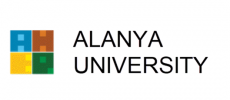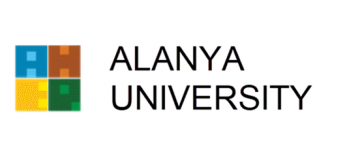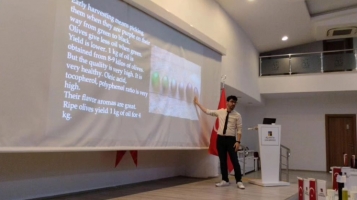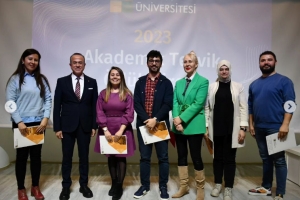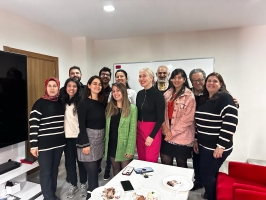Today, we had a seminar on "Olive Oil" by Lecturer Erdi Eren. We learned a lot of new information about olive oil. The small sensory analysis at the end of the seminar was also very enj...
Course Contents
COURSE CONTENTS
GSTE 501 Gastronomy Science
This course covers food components, applied techniques, the effects of techniques on food components, and physical and chemical changes that occur during application.
GSTE 502 Sectoral Seminars
The aim of this course is for gastronomy professionals to share their own work experiences with students. Through seminars where experts in different fields of gastronomy (regional cuisines, wine, gastronomy writing, etc.) share their knowledge and experiences with students, students have the opportunity to get to know the gastronomy sector more closely and use this information in their career development.
GSTE 504 Sensory Analysis in Gastronomy
This course will address how product evaluation criteria are determined in gastronomy. Physiological and psychological factors affecting consumer product selection will be discussed. Information about the fundamentals of sensory perception in consumers will be conveyed. The effects of different cooking techniques and formulations on the sensory properties of the final product, testing the appearance, taste, smell, sound, etc. sensory properties of the product with sensory panels. In addition, laboratory technologies, equipment, and techniques that can be used to evaluate these properties are also taught in this course.
GSTE 506 Basic Cooking Methods
This course aims to enable students to look at cooking from different perspectives by addressing topics such as nutrition and nutrients, the purposes of cooking, types of heat transfer, the effects of different cooking methods on health, and safety and health in the kitchen.
GSTE 512 Molecular Gastronomy Techniques
This course aims to enable students to look at molecular gastronomy from different perspectives by addressing topics such as the definition of molecular gastronomy, techniques used, the place of molecular gastronomy in the world, and new trends.
GSTE 516 Chemical Structures of Foods and Basic Information
This course aims to provide general information about food chemistry and food processing and to discuss their importance from a gastronomic perspective.
GSTE 501 Gastronomy Science
This course covers food components, applied techniques, the effects of techniques on food components, and physical and chemical changes that occur during application.
GSTE 502 Sectoral Seminars
The aim of this course is for gastronomy professionals to share their own work experiences with students. Through seminars where experts in different fields of gastronomy (regional cuisines, wine, gastronomy writing, etc.) share their knowledge and experiences with students, students have the opportunity to get to know the gastronomy sector more closely and use this information in their career development.
GSTE 504 Sensory Analysis in Gastronomy
This course will address how product evaluation criteria are determined in gastronomy. Physiological and psychological factors affecting consumer product selection will be discussed. Information about the fundamentals of sensory perception in consumers will be conveyed. The effects of different cooking techniques and formulations on the sensory properties of the final product, testing the appearance, taste, smell, sound, etc. sensory properties of the product with sensory panels. In addition, laboratory technologies, equipment, and techniques that can be used to evaluate these properties are also taught in this course.
GSTE 506 Basic Cooking Methods
This course aims to enable students to look at cooking from different perspectives by addressing topics such as nutrition and nutrients, the purposes of cooking, types of heat transfer, the effects of different cooking methods on health, and safety and health in the kitchen.
GSTE 512 Molecular Gastronomy Techniques
This course aims to enable students to look at molecular gastronomy from different perspectives by addressing topics such as the definition of molecular gastronomy, techniques used, the place of molecular gastronomy in the world, and new trends.
GSTE 516 Chemical Structures of Foods and Basic Information
This course aims to provide general information about food chemistry and food processing and to discuss their importance from a gastronomic perspective.
